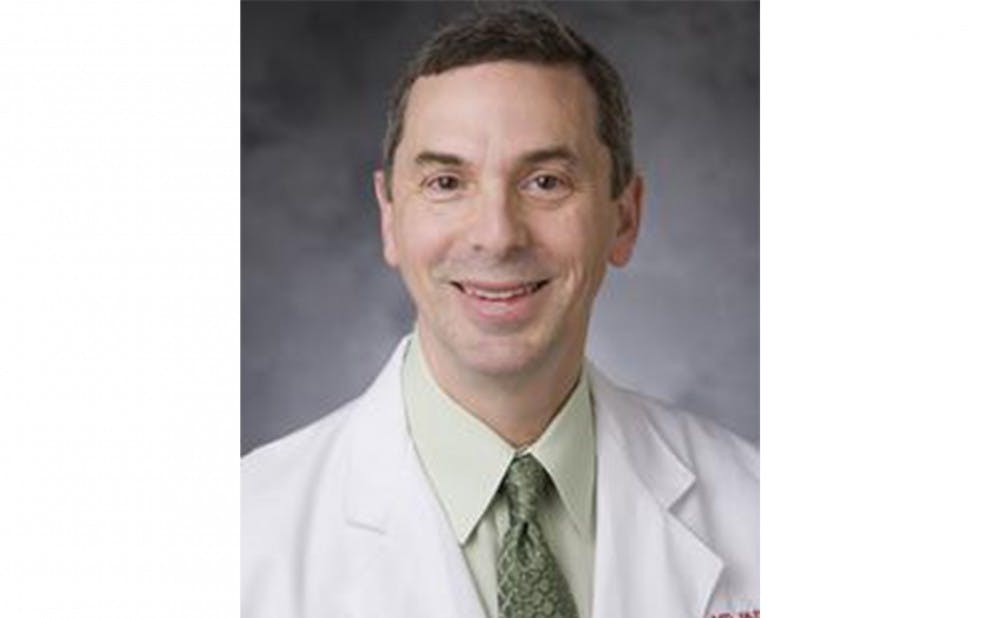Duke University Health System will feature a program to address the unique needs of teenage cancer patients by the end of 2016.
Using donations from the Duke Cancer Institute and other foundations, DUHS is in the process of planning the program’s services and hopes to unveil it before the end of this year, said Dr. Daniel Wechsler, associate professor of pediatrics, pharmacology and cancer biology. Junior Mark Schreiber, a cancer patient and member of Pi Kappa Alpha fraternity, explained that his fraternity has raised more than $50,000 for adolescent cancer programs at Duke Health.
“There are needs for children and adults that are totally different from people in our age group, but we don’t have specific resources for these people,” Schreiber said.
Wechsler explained that teenagers with cancer face unique challenges such as managing classes, jobs and relationships while undergoing treatment. The main goal of the program will be to help teenagers with their journey through cancer, he said.
Teenagers and young adults between the ages of 15 and 29 will be included in the program. Wechsler noted that people in this age range are caught in between two distinct stages of life—childhood and adulthood—which creates additional difficulties for them.
“Teens are trying to figure out what to do with their lives personally and professionally,” he said. “They have tons of things going on.”
Many adolescents struggle with balancing other commitments in their lives because of the lengthy treatments they have to undergo, which often require clinic visits multiple times a week or overnight hospital stays, he said.
In addition, treatment can interfere with the ability of adolescents to separate from their parents and can have negative effects on their social lives, Wechsler explained.
“When you’re younger, it’s not as much of an issue, but in high school or college, peers are really important,” he said.
To address these problems, the program plans to include psychologists, social workers and recreational specialists who specialize in working with adolescents. They will assist patients in coping with their diagnoses and will also provide career counseling, Wechsler noted.
Fertility specialists will also be available to help young adults if their particular treatment could impact their ability to have kids in the future, he added.
“There will be physicians and physician supporters who are very familiar with the types of tumors and cancers that people in this age range get,” Wechsler said.
Schreiber noted that the program is still in development and that the logistics are dependent on space and funding.
He said that the doctors he has spoken with in DUHS are excited about his fraternity’s donation. Junior Petros Palandjian—president of Pi Kappa Alpha fraternity—and senior Will Clark led the efforts to raise money on behalf of Schreiber and freshman Bobby Menges.
The GoFundMe page raised $10,000 in the first seven hours after it was created and $20,000 in the first 24 hours of its activity. More than one month later, the fraternity has accumulated more than $55,000 in donations and surpassed its $50,000 goal.
Although Pi Kappa Alpha initially was donating to Duke Children’s Hospital because the facility currently treats adolescents, Schreiber noted that he was excited that the group can now make a more specific contribution.
Wechsler said that he hopes the new program will draw awareness to the prevalence of cancer in adolescents. Although between 40,000 and 50,000 adolescents are diagnosed with cancer each year, there is much more awareness about pediatric cancer, which affects only about 12,000 children annually, he explained.
The idea of teenage cancer receiving little attention was also addressed during Vice President Joe Biden’s campus visit in February, when he discussed barriers to curing cancer with a panel of experts. One panelist, Niklaus Steiner—director of the Center for Global Initiatives at the University of North Carolina at Chapel Hill—shared the story of his daughter Sophie, who passed away at age 15 due to cancer.
Steiner and his wife have since founded the Be Loud! Sophie Foundation to support adolescent and young adult cancer patients.
Wechsler explained that because teenagers often think of themselves as invincible, they tend to ignore possible symptoms, which delays their diagnoses and makes the cancer harder to treat.
“We want to increase awareness [of cancer] in the population of 15- to 29-year-olds but also in the community,” Wechsler said.
Get The Chronicle straight to your inbox
Signup for our weekly newsletter. Cancel at any time.

